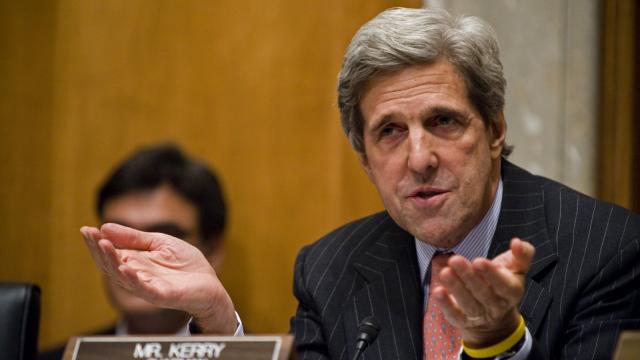
The U.S. environment regulator on Monday said the State Department must take a harder look at climate and other impacts of the Canada-to-Texas Keystone XL oil sands pipeline before the Obama administration issues a final decision on the project.
The Environmental Protection Agency rated the State Department's 2,000-page March 1 draft review of the TransCanada Corp pipeline project as "insufficient," in a letter to department officials as a public comment period ended on Monday.
The agency's tough stance signals that unless the State Department addresses its concerns in a final review, it could create more hurdles for a $5.3 billion dollar project which has been pending for more than four years.
Backers say the project would boost North American energy security and provide thousands of construction jobs. Opponents argue that it would lead to higher releases of greenhouse gases.
The EPA said it was concerned about carbon emissions from the oil sands that are energy-intensive to produce, and about the safety of transporting Canadian crude via pipeline following a high profile spill in a Michigan river in 2010.
There was a reminder of the threat last month when an Exxon Mobil pipeline spilled thousands of barrels of Canadian crude in Arkansas, but the EPA letter did not mention that incident.The agency was also concerned about the State Department's conclusion that the climate would not be affected by approval of the line because rail would be a major transport alternative.
"This analysis should include further investigation of rail capacity and costs, recognizing the potential for much higher per barrel rail shipment costs," the letter said.
The Obama administration is expected to make a final decision on the line late this year.
The EPA said the State Department should estimate the social cost of emissions from the pipeline including damage to agriculture, human health and property from climate change.
The request came despite an almost 20 percent reduction in the EPA's estimate of how much carbon dioxide would be released from the oil sands crude carried by the pipeline over its 50-year life, to 935 million metric tons.
"We seem to have continued concern," said a source at the EPA. "We're pretty assiduously tracking the project."
An interagency Obama administration group has put the social cost of carbon emissions at $5 to $65 dollars a ton. If the emissions of the oil sands are not reduced, that means emissions from the Keystone pipeline could cost between nearly $5 billion to more than $60 billion over 50 years.
The State Department will have to address the EPA concerns when it finalizes its review, which could take some time as it reviews more than 1 million public comments.
In a statement it said it had "always anticipated" the need to do further analysis on the basis of feedback to its draft review.
Once the final review is released, the EPA will have another three months to raise further objections if it is still not satisfied.
The State Department is in charge of determining whether Keystone should get a presidential permit because the pipeline would cross the national border. President Barack Obama is expected to weigh in on the decision.
NOT A REPUDIATION
An environmentalist said the EPA's concerns should push Obama to oppose the project, even though the southern leg of the pipeline, which did not need State Department approval, is already 60 percent built.
"We still expect him to do the right thing and the EPA has given him yet another reason to reject Keystone XL," said May Boeve, the head of environmental group 350.org.
TransCanada spokesman Shawn Howard said emissions should not be a factor in the decision because Canada's oil sands would replace imports of heavy oil from Mexico and Venezuela.
In the more than four years that Washington has considered permitting TransCanada's project, the EPA had raised concerns three times about State Department reviews of the project. And the concerns have led to delays.
But the EPA ratings have improved. In 2010 the agency gave the State Department's first environmental review of the project the worst possible rating of "inadequate".
An energy policy analyst said the environment agency's comments on Monday were not likely to stop the approval process from moving forward.
"This is not a blessing by any means, but it's not a repudiation, either," said Kevin Book of ClearView Energy Partners.
Originally published by Reuters.
3 WAYS TO SHOW YOUR SUPPORT
- Log in to post comments
















